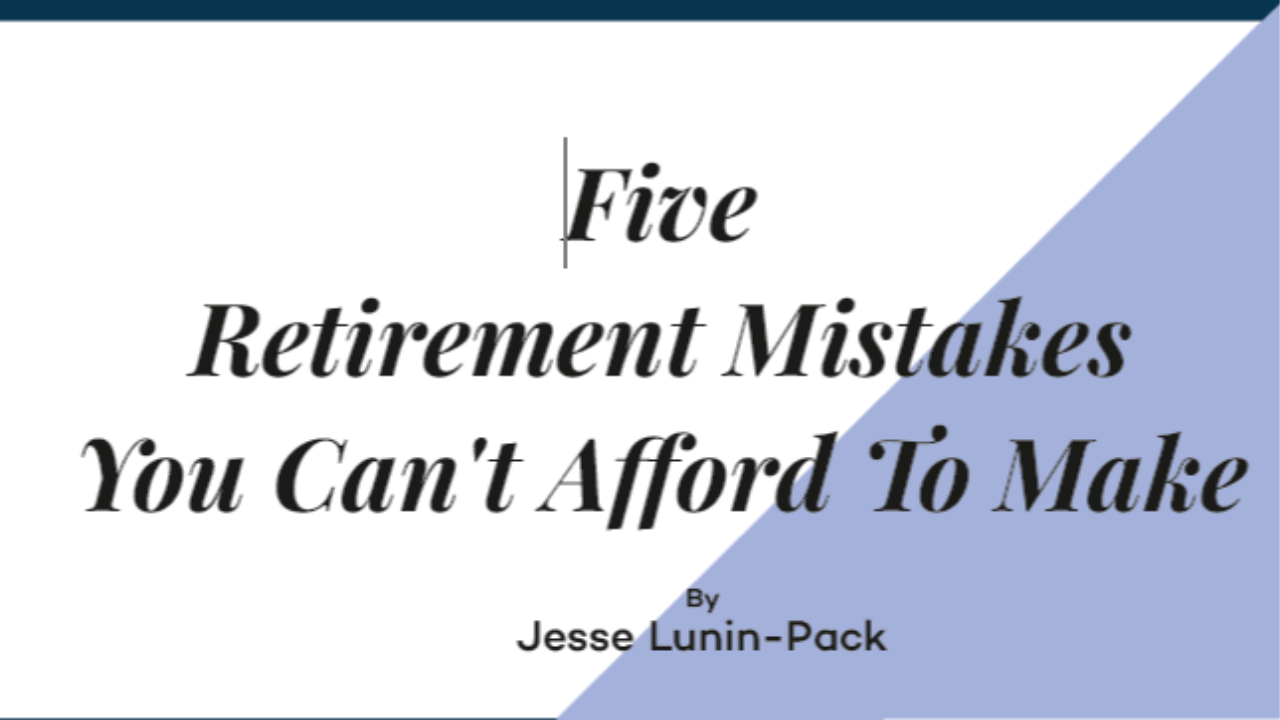Five Retirement Mistakes You Can't Afford To Make: Mistake #3

Mistake #3: Not Planning For Long-Term Care
Long-term care is the elephant in the room that nobody wants to think about. Nobody wants to spend their last years living in a nursing home, reliant on strangers for their care and with an unknown person as a roommate.
And that’s the point of planning for long-term care. According to Morningstar, 52.3% of 65 year-olds can expect to have a need for long-term care at some point in their lives. For women turning 65, that number is even higher (remember, women tend to outlive their male partners). The correct way to look at long-term care planning is not to plan for “what happens IF I need it,” but rather to plan for “what happens WHEN I need it.”
Traditional long-term care insurance has (justly) earned a bad reputation as a product that is sold at unreasonably low rates, and then the price goes up every year until it is no longer affordable. However, it’s quite possible to spend down even a comfortable nest egg with a relatively short need for care. So how do you plan?
As with most retirement questions, your ability to plan will be very dependent on your unique situation. If you have sufficient assets, you may indeed be able to self-insure. Perhaps you have an old life insurance policy with cash value – these policies can often be exchanged for a new policy that includes coverage for long-term care expenses on a favorable basis (of course only if you are healthy – all the more reason to get to the gym regularly!). Or perhaps traditional long-term care insurance may be appropriate.
However, even if none of the above options are appropriate for you, it is still important to plan ahead. By consulting with a qualified eldercare attorney, it may be possible to stay in your own home surrounded by your loved ones, even if you require round-the-clock care and don’t have the resources to pay for it. By planning ahead, you can ensure that whatever happens, you will be taken care of in a the manner that best preserves your dignity, and best preserves resources for your surviving spouse and family once you’re gone.

